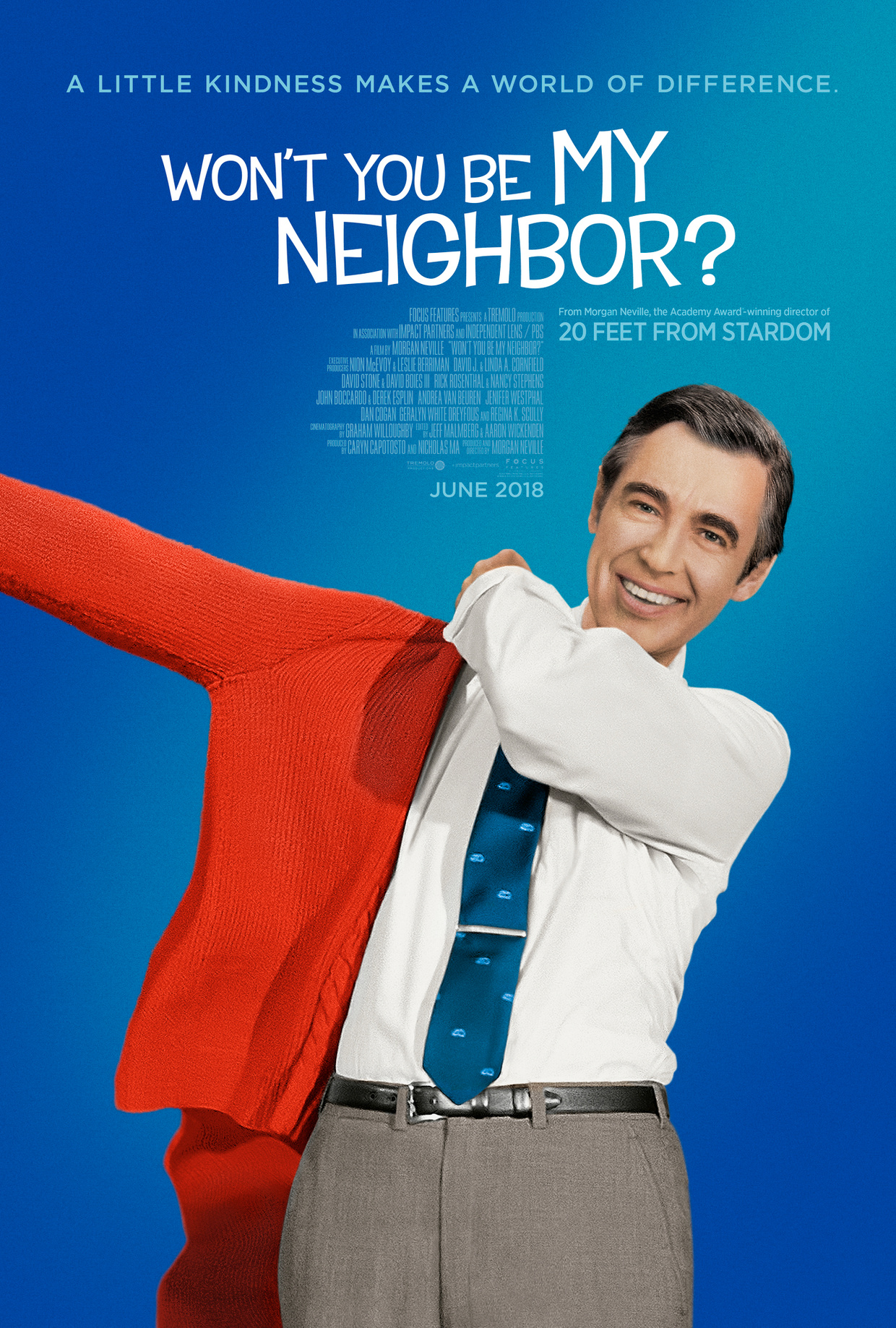Film Review: Won’t You Be My Neighbor? (2018)



Even if you didn’t grow up watching Fred Rogers on TV, there’s so much to love about Won’t You Be My Neighbor? I did, and I was amazed at how transportive Morgan Neville’s documentary is. I found myself filled with memories of sitting on living room floors – complete with textures and colors of the carpets. The wallpaper, the paneling, and the sounds from the kitchen made their way into my memory as well. If you were to have asked by before the movie what my favorite memories of the show were, I wouldn’t have been able to tell you a thing. It wasn’t specifics of the show I remembered, I realized, it was a sense of learning and growing. Won’t You Be My Neighbor? brought all this back in a matter of minutes. That’s quite an accomplishment.

One of my favorite parts of the film is when the rumors are addressed. Maybe you’ve heard some of them before. The best is that he was a Navy SEAL and he wears a sweater to cover up all the tattoos he has. I never believed that, but his friends and family offer some insight into why rumors like that exist. They explain that Fred was such a unique and honest individual that people had a hard time figuring him out – so they made stuff up to explain his perceived eccentricities.

What’s interesting is that these eccentricities are merely the everyday life of a truly decent human being. He only seems weird when compared to the rest of us because he’s so very not weird. We’re the messed-up ones, not Fred. It seems people aren’t used to seeing that sort of thing in a grown man. What does that say about us?

Fred Rogers cared about people. That’s why he did what he did for so long. The footage of him tackling big issues (he took on the Vietnam War in his very first episode!) is awe-inspiring. How he works with kids, understands them – their fears and anxieties – seems so complex but so very simple when you break it down. At one point in the film, a minister admits that Fred’s approach is more effective than Church.

Won’t You Be My Neighbor? doesn’t break a lot of new ground in the world of documentary filmmaking but manages to break free of reliance on the talking head format due to the vast amount of archival footage. This is where the film really lives – in Fred’s words and actions. The interviews serve to fill in gaps and work as transitional elements but aren’t relied on to tell the story.

It’s an emotional movie but in the best possible sense. The world has always needed a Fred Rogers – maybe now more than ever. Watching Won’t You Be My Neighbor? makes you want to be a good person. It makes you want to hug your family and go outside to meet your neighbors. It makes you want to help people, and it makes you realize that you can. When selfishness run rampant, what Fred Rogers did for generations of kids was a revolutionary act. He may have been the kindest rebel who ever lived, and hopefully, his legacy will live on and his message will continue to resonate.
